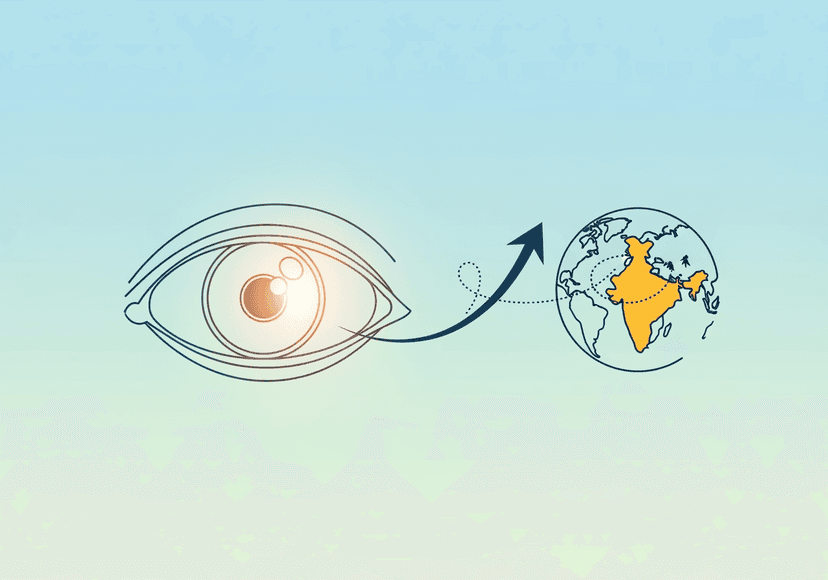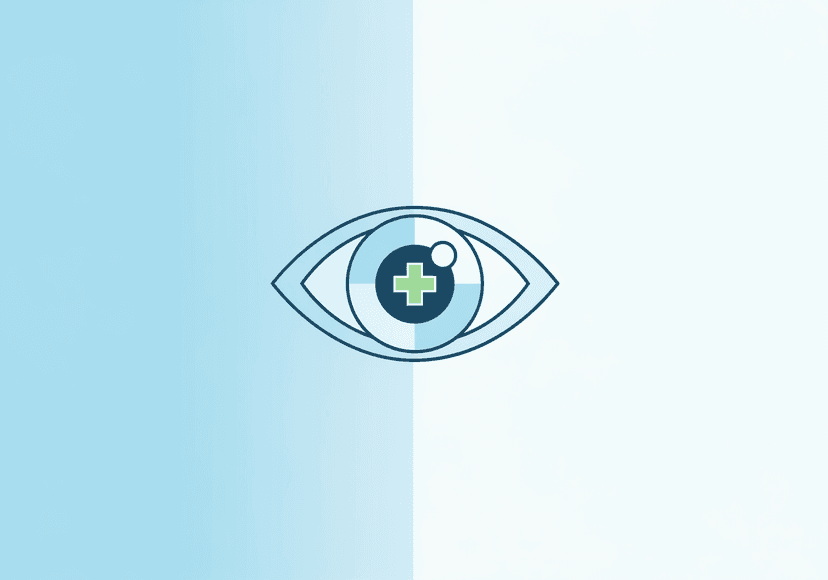
Post-Surgery Recovery Tips for International Patients
29 Jun, 2025
 Healthtrip
Healthtrip- < li>Planning Your Post-Surgery Recovery Abroad
- Communication is Key with Hospital like Fortis Memorial Research Institute, Gurgaon
- Medication Management: A Detailed Guide
- Nutrition and Hydration for Healing with options like Bangkok Hospital
- Managing Pain Effectively, Memorial Sisli Hospital, Istanbul.
- Wound Care and Infection Prevention at Saudi German Hospital Cairo, Egypt
- The Role of Physical Therapy in Recovery at Vejthani Hospital
- Mental Wellbeing and Emotional Support
- Travel Considerations Post-Surgery from Hospital Quirónsalud Cáceres
- Conclusion
Planning Your Post-Surgery Stay
Planning is paramount when it comes to post-surgery care, especially when you're far from home. Before you even pack your bags, consider the length of your stay and the type of accommodation that best suits your needs. Healthtrip can assist you in arranging comfortable and convenient lodging near your chosen hospital, be it Saudi German Hospital Alexandria, Egypt or Vejthani Hospital in Bangkok. Explore options like hotels with medical facilities or recovery centers that offer specialized post-operative care. Remember, the goal is to create a stress-free environment where you can focus solely on healing. Don’t forget to factor in the local climate; recovering in the tropical heat of Bangkok or the dry air of Dubai at NMC Specialty Hospital, Al Nahda, Dubai requires different considerations than recuperating in cooler climates. Make sure your accommodation has amenities that cater to your specific needs, such as accessible bathrooms, comfortable bedding, and reliable Wi-Fi to stay connected with loved ones. This is also a great time to coordinate with Healthtrip’s concierge services, ensuring transportation, meal plans, and any extra comforts are all set before you arrive.
Most popular procedures in India
Packing Essentials for Recovery
Packing for a post-surgery trip requires more than just your usual vacation essentials. Think comfort and practicality. Loose, comfortable clothing is a must – imagine slipping into soft, breathable fabrics after surgery at Memorial Sisli Hospital in Istanbul. Don't forget any prescribed medications and a copy of your medical records, just in case. Pro tip: pack a travel-sized first-aid kit with essentials like pain relievers, antiseptic wipes, and bandages. If you’re having a procedure that might affect your mobility, consider bringing assistive devices like a travel cane or support pillows. Entertainment is also key; load up your devices with books, movies, or podcasts to keep your spirits high during downtime. And, of course, don’t forget the small comforts of home – a favorite blanket, a comforting tea, or familiar snacks can work wonders for your emotional well-being. Healthtrip can help you create a personalized packing list based on your specific procedure and destination, ensuring you have everything you need for a smooth and worry-free recovery at facilities like Quironsalud Hospital Toledo in Spain.
Managing Pain and Discomfort
Post-operative pain is a common concern, but with the right strategies, you can manage it effectively. Follow your doctor's instructions meticulously when it comes to medication, whether you're recovering at Bangkok Hospital or Fortis Hospital, Noida. Don’t hesitate to communicate any concerns or side effects to your medical team; Healthtrip can facilitate these communications to ensure clarity and prompt attention. Non-pharmacological methods can also play a significant role. Gentle movement, as advised by your physical therapist, can help improve circulation and reduce stiffness. Mindfulness techniques like deep breathing and meditation can help calm your mind and reduce stress, which in turn can lower your perception of pain. Creating a comfortable environment is crucial. Ensure your room is at the right temperature, and use pillows to support your body in comfortable positions. Remember, managing pain is a holistic approach that combines medication, physical therapy, and mental well-being. Healthtrip’s care coordinators can assist in arranging necessary physiotherapy sessions or counseling services in your recovery location, such as near Taoufik Clinic, Tunisia, ensuring you have comprehensive support.
Wellness Treatments
Give yourself the time to relax
Lowest Prices Guaranteed!

Lowest Prices Guaranteed!
Nutrition and Hydration
Proper nutrition and hydration are the unsung heroes of post-surgery recovery. Your body needs the right fuel to heal effectively, and a balanced diet rich in vitamins, minerals, and protein is essential, whether you are healing at Mount Elizabeth Hospital in Singapore or Helios Klinikum Erfurt in Germany. Avoid processed foods, sugary drinks, and excessive caffeine, as these can hinder the healing process. Instead, focus on whole, nutrient-dense foods like fruits, vegetables, lean proteins, and whole grains. Hydration is equally important; drink plenty of water to flush out toxins and keep your body functioning optimally. If you're in a country with unfamiliar cuisine, Healthtrip can help you find restaurants or catering services that provide healthy, customized meals that align with your dietary needs and preferences. Think delicious, nourishing meals tailored to support your healing journey. Working closely with a nutritionist or dietitian can also be beneficial, especially if you have specific dietary requirements or restrictions. Healthtrip’s network of healthcare professionals can connect you with the right experts to create a personalized nutrition plan that accelerates your recovery.
Preventing Infections
Preventing infections is a top priority during post-operative recovery, especially when you're in an unfamiliar environment. Strict adherence to hygiene practices is crucial. Wash your hands frequently with soap and water, and use hand sanitizer when soap isn't available, particularly after any interaction in public spaces near facilities such as Jiménez Díaz Foundation University Hospital. Keep your incision site clean and dry, following the specific instructions provided by your medical team at LIV Hospital, Istanbul or any other facility. Avoid touching the incision site unless you have thoroughly cleaned your hands. Be mindful of your surroundings and avoid crowded places where germs can easily spread. If you notice any signs of infection, such as redness, swelling, pus, or fever, contact your medical team immediately; Healthtrip’s 24/7 support ensures you can reach assistance at any time. Staying hydrated and maintaining a healthy diet can also boost your immune system, making you less susceptible to infections. Healthtrip can assist in arranging regular check-ups and follow-up appointments to monitor your recovery and address any potential concerns promptly, ensuring your well-being every step of the way.
Mental and Emotional Well-being
Recovering from surgery isn't just about physical healing; your mental and emotional well-being are equally important, especially when you're away from your familiar support system. It's normal to experience a range of emotions, from anxiety and frustration to sadness and loneliness. Acknowledge these feelings and allow yourself time to process them. Stay connected with loved ones through video calls, messages, and emails; their support can make a world of difference. Engage in activities that bring you joy and relaxation, whether it's reading, listening to music, or practicing gentle yoga, even if you are in the vicinity of busy areas such as around Singapore General Hospital. Mindfulness techniques like meditation and deep breathing can help calm your mind and reduce stress. If you're struggling with persistent negative thoughts or feelings, don't hesitate to seek professional help. Healthtrip can connect you with therapists or counselors who offer virtual or in-person sessions, providing you with the emotional support you need. Remember, taking care of your mental health is an integral part of your recovery journey, and seeking help is a sign of strength, not weakness. Maintaining a positive outlook and fostering a sense of hope can significantly impact your overall healing process.
Returning Home: Transitioning Your Care
As you prepare to return home, ensuring a smooth transition of your care is essential. Before you leave, obtain detailed discharge instructions from your medical team, including information about medications, follow-up appointments, and any necessary precautions, regardless of whether you were treated at Cleveland Clinic London or KPJ Ampang Puteri Specialist Hospital, Kuala Lumpur, Malaysia. Healthtrip can assist in translating these instructions into your native language and coordinating with your local healthcare providers to ensure continuity of care. Schedule any necessary follow-up appointments with your doctor at home, and provide them with a copy of your medical records. Consider arranging for home healthcare services if you anticipate needing assistance with mobility, wound care, or medication management. Pack all your medications in your carry-on luggage, along with a copy of your prescriptions; this is very important if you are traveling with multiple medications following fertility procedures, for example, after being a patient at First Fertility Bishkek, Kyrgyzstan or NewGenIvf Group, Hon Kong. Allow yourself plenty of time to rest and adjust to your home environment after your journey. Remember, recovery is an ongoing process, and it's important to be patient with yourself as you gradually resume your normal activities. Healthtrip’s post-travel support includes check-in calls and assistance with any medical queries that may arise, ensuring you're not alone on your journey to full recovery.
Planning Your Post-Surgery Recovery Abroad
Embarking on a medical journey abroad requires meticulous planning, especially when it comes to your post-operative recovery. It’s not just about booking your flight and choosing a hospital; it’s about creating a comprehensive roadmap that ensures a smooth, safe, and comfortable healing process. Think of it as orchestrating a symphony, where every note (or, in this case, every detail) plays a crucial role in the overall harmony. Start well in advance, ideally weeks, if not months, before your scheduled surgery. This allows ample time to research, consult with your surgeon both at home and at the destination hospital, and address any potential challenges that may arise. Consider factors like the climate of your destination, the availability of essential amenities, and cultural differences that might impact your recovery. For instance, if you're considering a procedure at the Fortis Memorial Research Institute, Gurgaon, understand the local lifestyle and healthcare customs to integrate more seamlessly into your recovery environment. This might involve familiarizing yourself with local pharmacies, dietary options, and transportation services. Speak to past patients through Healthtrip's patient network to glean first-hand insights on adjusting to the recovery setting.
Pre-Operative Preparations
Before you even step foot on that plane, there's a whole checklist of tasks that need your attention. First and foremost, consult with your primary care physician and your surgeon, both at home and at the destination hospital, such as Saudi German Hospital Alexandria, Egypt. This ensures everyone is on the same page regarding your medical history, the surgical procedure, and your recovery plan. Obtain all necessary medical records and prescriptions. Consider having a detailed report translated into the local language, which can be invaluable in case of emergencies. Arrange for accommodation that specifically caters to post-operative patients. This might mean opting for a hotel near the hospital with accessibility features, in-room medical services, or specialized dietary menus. Designating a caregiver is paramount. This could be a family member, a friend, or a professional medical escort. Their role is to provide emotional support, assist with daily tasks, monitor your condition, and ensure you adhere to your medication schedule. Prepare your home for your return. Stock up on essentials, arrange for transportation from the airport, and create a comfortable and accessible environment that supports your continued recovery. This might involve rearranging furniture, installing grab bars, or setting up a recovery station with all your essentials within easy reach. Consider virtual consultations with a Healthtrip representative before, during, and after your procedure for additional support and reassurance. They can serve as a liaison between you and the hospital, answer your questions, and help navigate any unforeseen challenges.
Communication is Key with Hospital like Fortis Memorial Research Institute, Gurgaon
Effective communication is the cornerstone of a successful medical journey, particularly when undergoing surgery abroad. It’s about more than just speaking the same language; it’s about understanding cultural nuances, medical terminology, and the specific protocols of the hospital you've chosen. From the initial consultation to the post-operative follow-up, clear and consistent communication is vital for ensuring that your needs are met and that you're fully informed every step of the way. Before your surgery, engage in thorough consultations with your surgeon and medical team at hospitals, for example, Fortis Memorial Research Institute, Gurgaon. Ask clarifying questions about the procedure, potential risks and complications, and the expected recovery timeline. Don't hesitate to seek a second opinion or request additional information if anything remains unclear. Preparing a list of questions beforehand can help you stay organized and ensure that all your concerns are addressed. Establish clear channels of communication with your medical team. This might involve designating a primary contact person who can answer your questions and coordinate your care. Utilize online portals, email, or video conferencing to stay in touch, especially if you're traveling from afar. Ensure there are language assistance services available, either through translators or bilingual staff. Misunderstandings due to language barriers can have serious consequences, so it's crucial to have reliable translation support. Confirm that the hospital has systems in place for managing communication between different departments and specialists. This helps ensure a seamless flow of information and prevents errors or oversights. After your surgery, maintain regular communication with your medical team. Report any unusual symptoms or concerns promptly, and don't hesitate to seek clarification on any instructions or recommendations. Utilize Healthtrip's platform to document all communication, which can provide a valuable reference point and ensure accountability.
Building a Strong Doctor-Patient Relationship
Cultivating a strong doctor-patient relationship is paramount for a positive surgical experience. Trust, mutual respect, and open dialogue are essential ingredients for creating a partnership that supports your well-being. Take the time to research your surgeon's credentials, experience, and patient reviews. This can help you feel confident in their expertise and establish a foundation of trust. Share your medical history, concerns, and expectations openly and honestly with your surgeon. This allows them to tailor your treatment plan to your specific needs and address any potential risks or complications. Actively participate in the decision-making process. Ask questions, express your preferences, and work collaboratively with your surgeon to develop a plan that you feel comfortable with. Be respectful of your surgeon's time and expertise. Arrive prepared for appointments, listen attentively to their advice, and follow their instructions carefully. Maintain regular communication with your surgeon and medical team. This helps build rapport, fosters trust, and ensures that you feel supported throughout your journey. Take advantage of Healthtrip's resources for connecting with experienced surgeons and accessing patient testimonials. This can help you make informed decisions and build a strong doctor-patient relationship based on trust and mutual respect.
Medication Management: A Detailed Guide
Managing your medications effectively is a critical aspect of post-operative recovery, especially when you're doing it in a foreign country. Getting it right can significantly impact your healing process, prevent complications, and ensure your overall well-being. It’s not just about popping pills; it’s about understanding what you're taking, how it interacts with other medications, and how to manage potential side effects. Start by creating a comprehensive list of all medications you’re currently taking, including prescription drugs, over-the-counter medications, vitamins, and supplements. Include the name of each medication, the dosage, the frequency, and the reason for taking it. Share this list with your surgeon, anesthesiologist, and pharmacist, both at home and at the destination hospital. This helps them ensure that there are no potential drug interactions or contraindications. Obtain prescriptions for all necessary medications before you travel. Carry the prescriptions with you, along with a letter from your doctor explaining your medical condition and the need for the medications. This can help you avoid any issues with customs or immigration officials. Research the availability of your medications in the country you're traveling to. Some medications may not be available or may have different brand names. Work with your doctor and pharmacist to find suitable alternatives if necessary. Understand the proper storage requirements for your medications, especially if you're traveling to a hot or humid climate. Keep your medications in a cool, dry place and protect them from direct sunlight. Create a medication schedule and set reminders to ensure that you take your medications at the right time, every time. Use a pill organizer to help you keep track of your medications and prevent accidental overdoses or missed doses. Be aware of potential side effects and drug interactions. Read the medication labels carefully and talk to your doctor or pharmacist if you have any concerns. Avoid alcohol and other substances that can interact with your medications. If you experience any adverse reactions, seek medical attention immediately. Consider using Healthtrip's platform to access medication information and connect with pharmacists who can answer your questions and provide guidance.
Navigating International Medication Regulations
Navigating international medication regulations can be complex, but it’s essential for ensuring that you can bring your medications into the country legally and without any hassle. Different countries have different rules regarding the import and export of medications, so it’s crucial to do your research and comply with all applicable regulations. Contact the embassy or consulate of the country you're traveling to and inquire about their medication regulations. Ask about any restrictions on the types of medications you can bring, the quantity you can bring, and the documentation you need to provide. Carry your medications in their original packaging, with the prescription label clearly visible. This helps demonstrate that the medications were legally prescribed and that you're taking them for a legitimate medical condition. Obtain a letter from your doctor explaining your medical condition, the medications you're taking, and the reasons why you need them. This letter should be written on official letterhead and signed by your doctor. Declare your medications to customs officials when you arrive in the country. Be prepared to show them your prescriptions, doctor's letter, and any other required documentation. Be aware that some countries have strict regulations regarding controlled substances, such as opioids and sedatives. If you're taking any controlled substances, you may need to obtain special permission from the country's health authorities before you travel. If you're staying in the country for an extended period, you may need to register with a local pharmacy or healthcare provider. This can help you access medications and medical care if needed. Utilize Healthtrip's resources for accessing up-to-date information on international medication regulations. This can help you avoid any legal issues and ensure that you can bring your medications into the country safely and legally.
Also Read:
Nutrition and Hydration for Healing with options like Bangkok Hospital
Proper nutrition and hydration are paramount to a successful recovery after surgery, whether you're recuperating at home or seeking treatment abroad. Think of your body as a construction site, diligently repairing and rebuilding tissues. It needs the right materials – the nutrients from your food – to do its job effectively. Focusing on easily digestible, nutrient-rich foods will significantly aid the healing process. Lean proteins, such as chicken, fish, or beans, are essential building blocks for tissue repair. Complex carbohydrates, like whole grains and sweet potatoes, provide sustained energy, while healthy fats from avocados, nuts, and olive oil support cell growth and reduce inflammation. Don't underestimate the power of fruits and vegetables! They are packed with vitamins, minerals, and antioxidants, shielding your body from damage and boosting your immune system. Consider consulting a nutritionist who specializes in post-operative care, particularly if you have specific dietary needs or restrictions. They can help you create a personalized meal plan that optimizes your recovery, perhaps even recommending local culinary options near hospitals like Bangkok Hospital, known for its holistic approach to patient care and international cuisine options, making recovery even more enjoyable.
Hydration: The Unsung Hero
Often overlooked, adequate hydration is just as crucial as nutrition. Water helps transport nutrients to cells, flush out toxins, and maintain overall bodily functions. Aim to drink plenty of water throughout the day. Herbal teas, clear broths, and diluted fruit juices can also contribute to your fluid intake. Avoid sugary drinks and excessive caffeine, as they can dehydrate you and hinder healing. Signs of dehydration include fatigue, dizziness, and dry mouth. If you're experiencing any of these symptoms, increase your fluid intake immediately. Remember, when you're recovering from surgery, your body requires more fluids than usual. Keeping a water bottle handy and sipping on it throughout the day is a simple yet effective way to stay hydrated. Also, certain fruits and vegetables, like watermelon and cucumbers, have high water content and can contribute to your hydration goals in a delicious way. Prioritizing both nutrition and hydration provides your body with the resources it desperately needs to mend and regain its strength, enabling a smoother and more comfortable recovery journey. Many hospitals abroad, including Bangkok Hospital, offer specialized dietary services and can work with you to create a nutrition plan tailored to your specific post-operative needs.
Also Read:
Managing Pain Effectively, Memorial Sisli Hospital, Istanbul.
Post-operative pain management is an integral aspect of recovery, significantly influencing your comfort and ability to heal effectively. Ignoring pain can hinder your progress, affecting sleep, appetite, and even your mental well-being. Thankfully, there are various strategies to manage pain, ranging from medication to alternative therapies. Your healthcare provider will typically prescribe pain medication, tailored to your specific needs. It's crucial to take these medications as prescribed, paying attention to the dosage and timing. Don't hesitate to communicate with your doctor or nurse if your pain is not adequately controlled. They can adjust the medication or explore other pain management options. Remember, pain management is not about eliminating pain completely, but rather about making it manageable so you can focus on healing. At hospitals like Memorial Sisli Hospital in Istanbul, pain management specialists are available to create personalized plans, ensuring your comfort throughout your recovery.
Beyond Medication: Holistic Approaches
Besides medication, explore non-pharmacological approaches to pain management. These methods can complement medication and reduce your reliance on them. Consider practices like deep breathing exercises, meditation, and gentle stretching. These techniques can help relax your muscles, reduce stress, and divert your attention from the pain. Heat or cold therapy can also provide relief. Applying a warm compress or taking a warm bath can soothe sore muscles, while ice packs can reduce inflammation. Physical therapy, as discussed later, plays a crucial role in pain management by restoring function and reducing pain through targeted exercises. Create a comfortable and relaxing environment for yourself. Dim the lights, play soothing music, and surround yourself with things that bring you joy. It's important to remember that pain is a subjective experience, and what works for one person may not work for another. Be patient with yourself, experiment with different techniques, and find what provides you with the most relief. Seeking guidance from pain management experts, like those available at Memorial Sisli Hospital, can provide invaluable support and resources to navigate the complexities of post-operative pain and significantly enhance your recovery experience.
Wound Care and Infection Prevention at Saudi German Hospital Cairo, Egypt
Meticulous wound care is paramount after surgery, regardless of whether you're recovering locally or abroad. Proper wound care minimizes the risk of infection and promotes optimal healing. Before you even leave the hospital, ensure you understand all instructions regarding wound care. This includes how to clean the wound, what type of dressing to use, and any signs of infection to watch out for. Typically, you will need to gently clean the wound daily with mild soap and water. Pat it dry with a clean towel and apply a fresh sterile dressing. Avoid using harsh chemicals or scrubbing the wound, as this can irritate the skin and delay healing. Keep the wound covered to protect it from bacteria and environmental contaminants. While abroad, hospitals like Saudi German Hospital Cairo, Egypt, provide comprehensive wound care instructions in multiple languages to cater to international patients.
Recognizing and Preventing Infection
Infection is a serious complication that can significantly hinder your recovery. Be vigilant for signs of infection, such as increased pain, redness, swelling, pus or drainage from the wound, and fever. If you notice any of these symptoms, contact your doctor immediately. Prevention is key to avoiding infection. Wash your hands thoroughly with soap and water before and after touching the wound. Avoid touching the wound unnecessarily, and make sure anyone who assists with your care has clean hands. Maintain a healthy lifestyle by eating nutritious foods, staying hydrated, and getting enough rest. These habits will boost your immune system and help your body fight off infection. If you're traveling for surgery, make sure your travel insurance covers potential complications like wound infections. During your stay at reputable facilities like Saudi German Hospital Cairo, stringent infection control protocols are in place to minimize risks, and their medical staff is highly trained in wound management and infection prevention, providing you with a safe and supportive healing environment.
Also Read:
The Role of Physical Therapy in Recovery at Vejthani Hospital
Physical therapy is often an indispensable part of the post-operative recovery journey, particularly for orthopedic surgeries, joint replacements, or procedures that impact mobility. It's more than just exercise; it's a tailored program designed to restore function, reduce pain, and improve your overall quality of life. Your physical therapist will assess your individual needs and create a personalized plan to help you regain strength, flexibility, and range of motion. This might include exercises to strengthen weakened muscles, stretches to improve flexibility, and balance training to prevent falls. Don't be surprised if your therapist starts with gentle exercises, gradually increasing the intensity as you progress. It's crucial to listen to your body and avoid pushing yourself too hard, especially in the early stages of recovery. Consistency is key to success; stick to your therapy schedule and diligently perform the exercises prescribed by your therapist. Hospitals like Vejthani Hospital in Thailand offer comprehensive rehabilitation programs with experienced therapists who understand the nuances of post-surgical recovery.
Beyond Mobility: A Holistic Approach
Physical therapy also addresses pain management, a common concern after surgery. Your therapist may use techniques like manual therapy, massage, or ultrasound to relieve pain and reduce inflammation. They can also teach you strategies to manage pain at home, such as proper posture and body mechanics. In addition to physical exercises, physical therapy also focuses on functional activities, helping you regain the ability to perform everyday tasks like walking, climbing stairs, and dressing independently. This holistic approach to recovery ensures that you not only regain physical strength but also the ability to participate fully in your daily life. For those traveling for surgery, institutions such as Vejthani Hospital offer specialized physical therapy programs designed for international patients, understanding cultural nuances and providing support throughout the rehabilitation process, ensuring a seamless and effective recovery experience.
Mental Wellbeing and Emotional Support
The post-operative period can be emotionally challenging. While physical recovery is crucial, nurturing your mental wellbeing is equally important. Surgery can trigger a range of emotions, from anxiety and fear to sadness and frustration. It's perfectly normal to experience these feelings. Acknowledge and validate your emotions, allowing yourself time to adjust to the changes in your body and lifestyle. Don't suppress your feelings; instead, find healthy ways to express them. Talking to a trusted friend, family member, or therapist can provide valuable emotional support. Keep in mind that recovery takes time, and there will be good days and bad days. Be patient with yourself and celebrate small victories along the way. Set realistic goals and focus on what you can do, rather than dwelling on what you can't. Engage in activities that bring you joy and relaxation, such as reading, listening to music, or spending time in nature. Maintaining a positive outlook can significantly impact your recovery.
Building a Support System
Isolation can exacerbate feelings of anxiety and depression. Build a strong support system by connecting with loved ones and seeking professional help if needed. Consider joining a support group where you can connect with others who have undergone similar experiences. Sharing your feelings and experiences with others can provide a sense of community and reduce feelings of isolation. If you're struggling with significant anxiety, depression, or other mental health concerns, don't hesitate to seek professional help from a therapist or counselor. They can provide you with coping strategies and support to navigate the emotional challenges of recovery. For patients traveling abroad, Healthtrip can assist in connecting you with resources for mental health support, ensuring that your overall wellbeing is taken care of during your medical journey. Remember, taking care of your mental health is an investment in your overall recovery. By prioritizing your emotional wellbeing, you can enhance your physical healing and improve your overall quality of life.
Travel Considerations Post-Surgery from Hospital Quirónsalud Cáceres
If you've undergone surgery abroad and are preparing to travel home, meticulous planning is essential to ensure a safe and comfortable journey. Before booking your flight, consult with your surgeon at hospitals such as Hospital Quirónsalud Cáceres regarding when it's safe for you to fly. They will assess your condition and provide guidance on any necessary precautions. Obtain a detailed medical report from your surgeon, including information about your surgery, medications, and any potential complications. This report will be invaluable in case of any medical issues during your travels. Ensure you have an adequate supply of all your medications, along with prescriptions, and keep them in your carry-on luggage. Pack comfortable clothing and footwear that won't irritate your incision. Consider wearing loose-fitting clothes to allow for swelling. Bring any necessary assistive devices, such as crutches or a walker, and ensure you know how to use them safely.
During Transit: Staying Comfortable and Safe
Inform the airline about your medical condition and request any necessary assistance, such as wheelchair service or priority boarding. During the flight, get up and walk around every few hours to improve circulation and prevent blood clots. Perform gentle leg exercises while seated, such as ankle pumps and calf raises. Stay hydrated by drinking plenty of water. Avoid alcohol and caffeine, as they can dehydrate you and interfere with your medications. Be mindful of your incision and avoid lifting heavy objects. If you experience any pain or discomfort, take your pain medication as prescribed. Upon arrival at your destination, allow yourself plenty of time to rest and recover. Avoid strenuous activities for the first few days. Follow your surgeon's instructions regarding wound care and medication. If you develop any complications, seek medical attention immediately. By carefully planning your travel arrangements and taking necessary precautions, you can ensure a smooth and safe journey home after surgery abroad. Hospitals like Hospital Quirónsalud Cáceres often provide pre-travel consultations and assistance to ensure your journey is as comfortable and stress-free as possible.
Conclusion
Navigating post-operative recovery, especially after undergoing surgery abroad, requires careful planning, diligent self-care, and a proactive approach to your physical and mental well-being. By prioritizing nutrition, pain management, wound care, physical therapy, and emotional support, you can significantly enhance your healing journey and achieve a successful recovery. Remember that every individual's recovery process is unique, and it's crucial to listen to your body and seek guidance from your healthcare team. Healthtrip is dedicated to supporting you every step of the way, providing resources and connections to ensure a seamless and comfortable medical travel experience. Whether it's connecting you with world-class hospitals, assisting with travel arrangements, or offering guidance on post-operative care, Healthtrip is your trusted partner in health and wellness, ensuring that you receive the best possible care and return home with renewed health and vitality.
Most popular wellness packages
Related Blogs

Long-Term Follow-Up After Eye Surgery
Detailed insights into eye surgery – doctors, hospitals, technology, recovery,

Healthtrip’s Transparency in Eye Surgery Pricing and Packages
Detailed insights into eye surgery – doctors, hospitals, technology, recovery,

Frequently Asked Questions About Eye Surgery
Detailed insights into eye surgery – doctors, hospitals, technology, recovery,

Advanced Robotic Technology Used in Eye Surgery
Detailed insights into eye surgery – doctors, hospitals, technology, recovery,

How Healthtrip Supports Foreign Patients for Eye Surgery in India
Detailed insights into eye surgery – doctors, hospitals, technology, recovery,

Top Medical Packages for Eye Surgery Offered by Healthtrip
Detailed insights into eye surgery – doctors, hospitals, technology, recovery,










